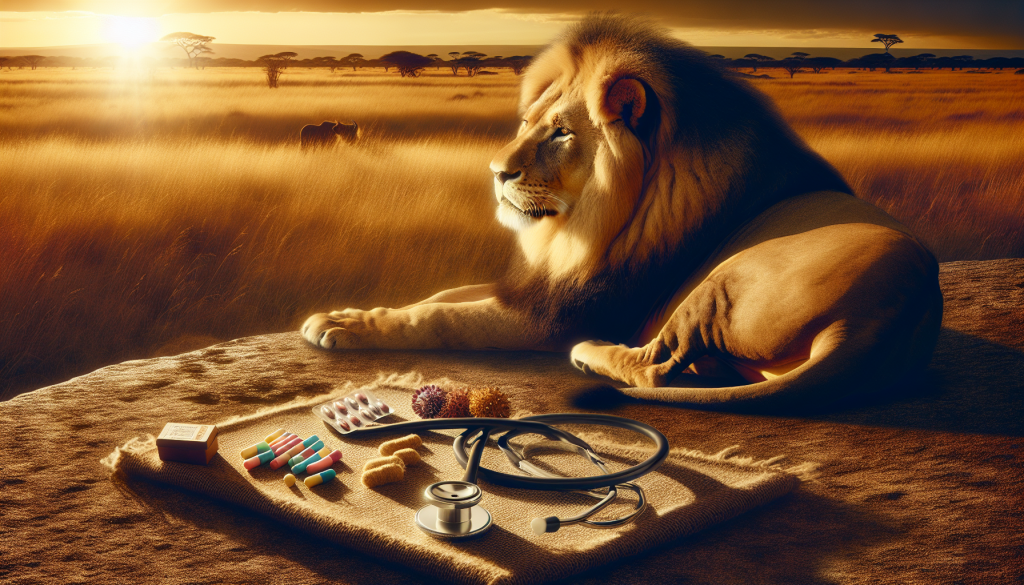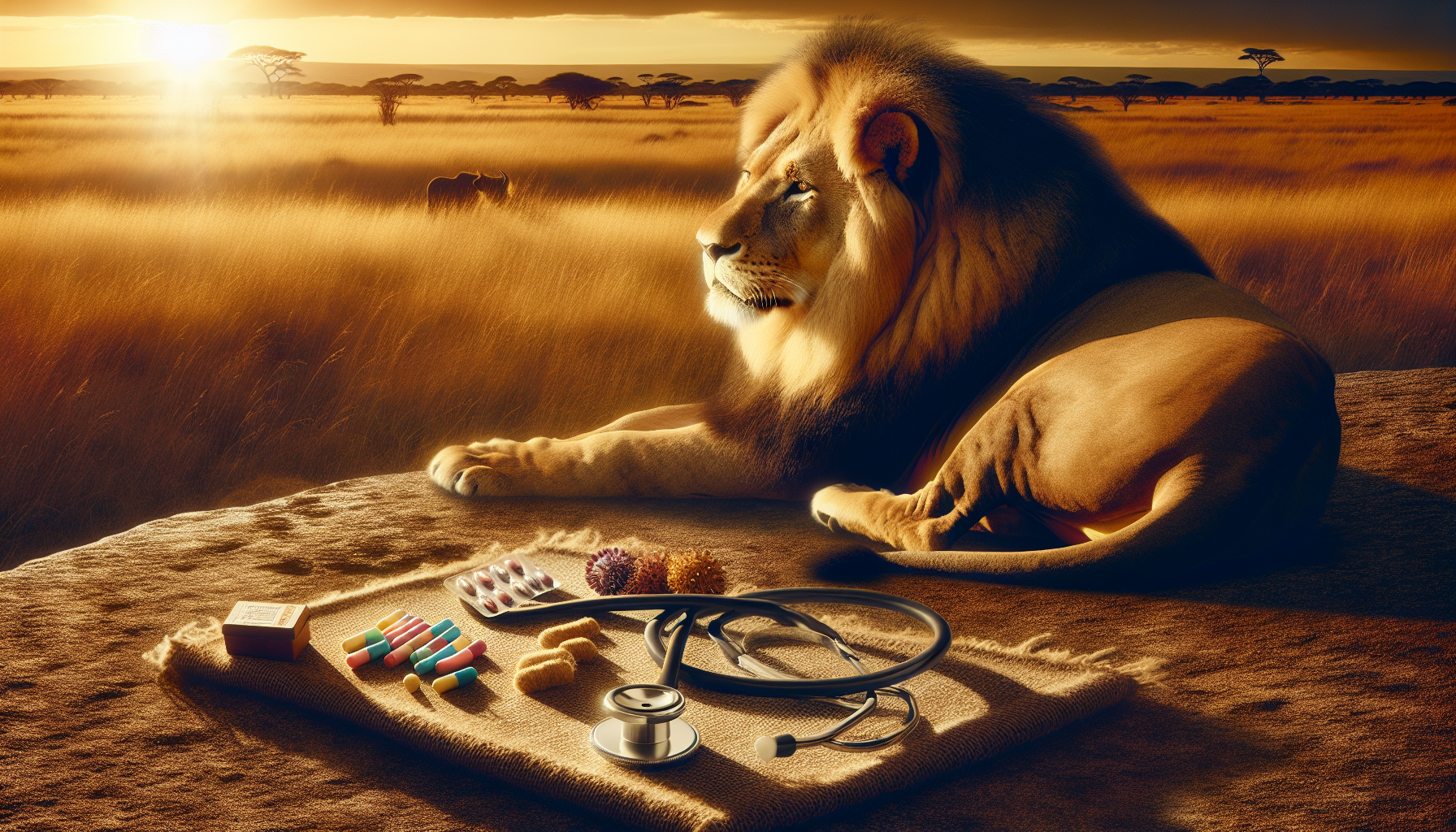Have you ever wondered about the health and well-being of lions? In a fascinating new article titled “Lion Health and Diseases: Experts Shed Light on Their Well-being,” experts delve into the intricacies of lion health and the diseases that affect these majestic creatures. With captivating insights and expert knowledge, this article provides a comprehensive look at the health risks faced by lions in their natural habitats. Get ready to discover the intricate world of lion health and diseases, and gain a deeper understanding of these extraordinary animals.
Introduction to Lion Health
Lions are majestic creatures known for their strength and power. Their health is of utmost importance, both in the wild and in captivity. Understanding lion health is essential for ensuring their well-being and conservation efforts. In this article, we will explore the common diseases that affect lions, the prevention and treatment options available, and delve into various aspects of their physical, mental, and emotional health.
Common Lion Diseases
Just like any other living beings, lions are susceptible to a range of diseases. It is crucial to be aware of these ailments in order to prevent and treat them effectively. Some of the most common diseases that affect lions include Feline Immunodeficiency Virus (FIV), Feline Leukemia Virus (FeLV), Tuberculosis, Parasitic Infections, Respiratory Infections, Gastrointestinal Disorders, Skin Diseases, Ocular Diseases, Musculoskeletal Disorders, and Neurological Disorders. Understanding these diseases is key to securing the health of lions.

Prevention and Treatment
Preventing diseases in lions is of paramount importance. Vaccination and immunization play a vital role in maintaining the lion population’s overall health. Additionally, quarantine and biosecurity measures help control the spread of contagious diseases. Routine health examinations, combined with various diagnostic techniques, enable early detection and treatment, enhancing their chances of recovery. Medication, therapies, surgical interventions, pain management, and rehabilitation techniques are essential tools in the treatment of lion diseases.
Understanding Lion Well-being
Lions’ overall well-being is not just limited to their physical health; it also encompasses their mental and emotional states. To gauge their well-being accurately, researchers and zoologists focus on physical indicators such as body condition and weight management, cardiovascular fitness, respiratory health, muscle tone and strength, skeletal health, digestive health, immune system function, and hormonal balance. Behavioral indicators such as social interactions, group dynamics, and environmental enrichment also provide valuable insights into their well-being. Assessing and monitoring these factors is crucial for understanding the holistic health of lions.

Physical Health of Lions
Maintaining physical health is vital for the survival and prosperity of lions. Proper body condition and weight management ensure optimal health. Cardiovascular fitness, respiratory health, muscle tone and strength, skeletal health, digestive health, immune system function, and hormonal balance all contribute to their overall physical well-being. Lions depend on their robust physiology to hunt and defend their territory. Ensuring their physical health through proper veterinary care, monitoring, and management is essential.
Nutrition and Diet
A well-balanced diet is crucial for the health and longevity of lions. As obligate carnivores, their dietary requirements differ significantly from other animals. A carnivorous diet rich in protein and fat is essential for their survival. The frequency and patterns of feeding need to align with their natural behaviors. Special dietary considerations, such as providing a variety of prey and supplements, help provide a complete nutritional profile. Monitoring their dietary health ensures they receive the necessary nutrients for a healthy life.
Exercise and Activity
Physical activity is an integral part of a lion’s life. It not only helps maintain their physical health but also stimulates their natural instincts and behaviors. Understanding the importance of physical activity and providing adequate space for lions to engage in natural behaviors is crucial. Enrichment programs, training exercises, and providing opportunities for mental stimulation all contribute to their overall well-being. Regular monitoring of their fitness levels ensures they remain active and healthy.
Dental Health
Dental health is often overlooked but plays a significant role in overall lion health. Lions require strong, healthy teeth to tear meat and maintain their hunting prowess. Understanding the oral anatomy of lions is crucial for preventing dental diseases. Regular dental care, including cleaning and oral hygiene maintenance, helps prevent issues such as dental decay, gum disease, and tooth loss. Routine dental examinations and treatments are vital for maintaining optimal oral health in lions.
Reproductive Health
Reproductive health is critical for maintaining a healthy lion population. Breeding and successful reproduction are essential to ensure genetic diversity and prevent inbreeding. Zoos and conservation organizations play a pivotal role in managing the reproductive health of lions through monitored breeding programs. Regular veterinary care, monitoring hormone levels, and conducting reproductive examinations help ensure the reproductive success of lions in captivity and the wild.
Mental and Emotional Health
Lions, like all animals, have complex psychological and emotional needs. Understanding their cognitive abilities, social behaviors, and interactions provides valuable insights into their mental and emotional well-being. Environmental stressors, such as a lack of mental stimulation, confinement, and social isolation can adversely affect their mental health. Animal welfare and psychological well-being play a vital role in ensuring lions lead fulfilling lives. Identifying and addressing behavioral disorders through psychological treatments is crucial for their mental and emotional well-being.
In summary, lion health extends far beyond physical well-being. A comprehensive understanding of common diseases, prevention, and treatment options is essential. Assessing their physical health, providing adequate nutrition and diet, encouraging physical activity, and maintaining dental, reproductive, mental, and emotional health all contribute to the overall well-being of lions. By prioritizing lion health, we can ensure the continued survival and conservation of these majestic creatures for generations to come.

